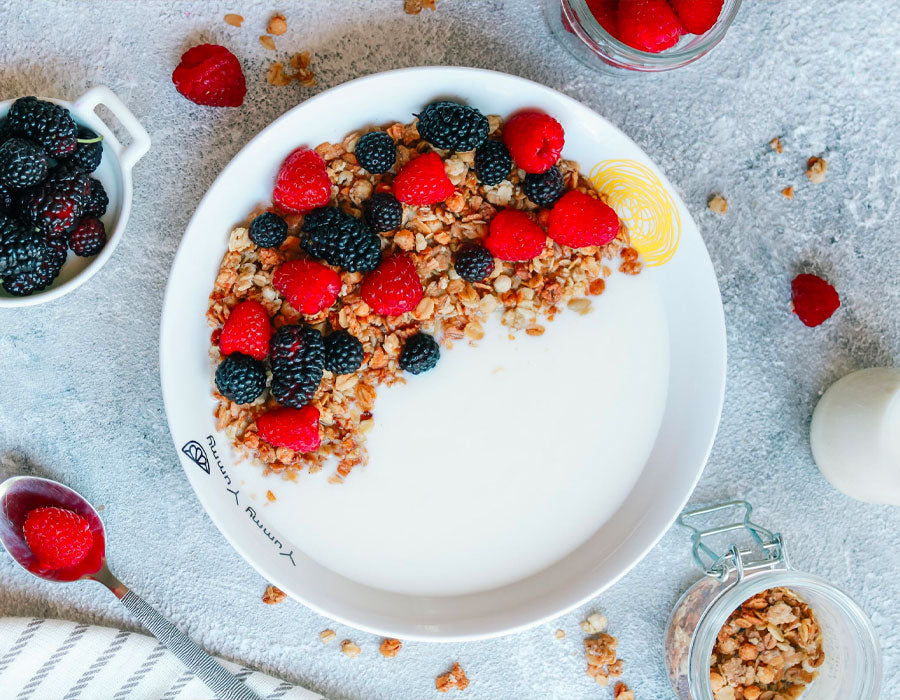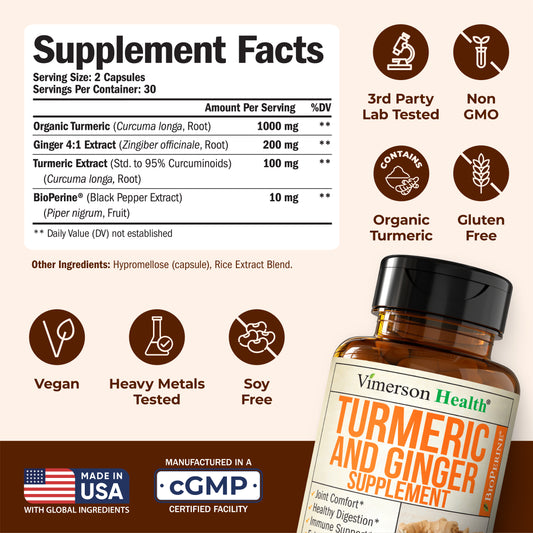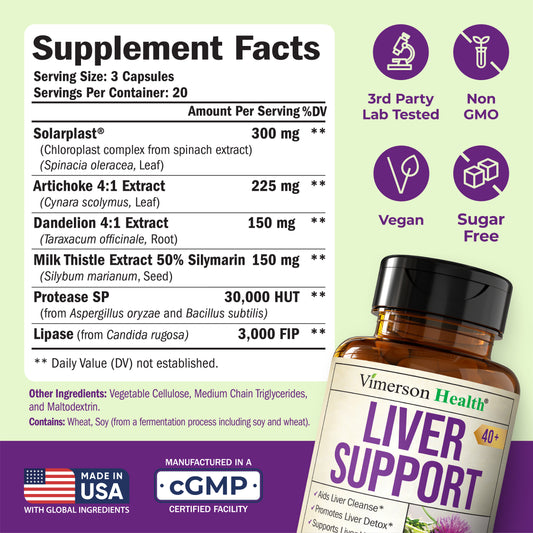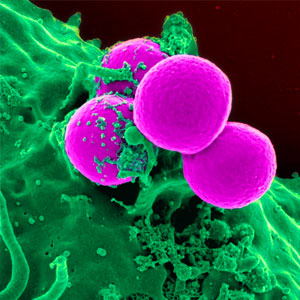-
Digestive Enzymes - Probiotic Multi Enzyme (Enzimas Digestivas) - Digestive Supplements with Unique Makzyme-Pro Formula - Advanced Enzymes for Digestion, Bowel Movements & Nutrient Absorption. 60 Caps
Vendor:Vimerson HealthRegular price $23.97Regular priceUnit price per -
Probiotics for Women & Men with Prebiotics - 40 Billion CFU Probiotics for Digestive Health, Gut Health & Immune Support Supplement - Lactobacillus Acidophilus Probiotic - Vegetarian, Soy & Dairy Free
Vendor:Vimerson HealthRegular price $21.97Regular priceUnit price per -
Turmeric Supplement & Chamomile Capsules for Sleep - Organic Turmeric Sleep Supplement with Chamomile Flowers Extract (Manzanilla) - Relaxation & Stress Support - Joint & Digestive Health. 60 Capsules
Vendor:Vimerson HealthRegular price $23.97Regular priceUnit price per -
Organic Apple Cider Vinegar with Turmeric Curcumin Supplement & Ginger for Digestive Health, Metabolism, Energy & Joint Support - Organic Turmeric & Apple Cider Vinegar Capsules. 60 Vegan Non-GMO Caps
Vendor:Vimerson HealthRegular price $20.97Regular priceUnit price per -
Turmeric Curcumin Supplement with Ginger Root for Joint Support, Digestive & Gut Health - Contains Organic Turmeric Curcumin with Black Pepper (Bioperine) for Enhanced Absorption - 60 Capsules
Vendor:Vimerson HealthRegular price $21.97Regular priceUnit price per -
Vegan Liver Cleanse Detox & Repair – Herbal Liver Support Supplement w/ Silymarin Milk Thistle, Zinc, Dandelion Root & Artichoke Extract for Enzyme Support, Energy & Healthy Digestion. 60 Capsules
Vendor:Vimerson HealthRegular price $20.47Regular priceUnit price per -
Berberine Supplement with Third Party Tested Berberine 1800mg - Immune Support Supplement for Cardiovascular, Gastrointestinal Function & Metabolic Aid - Vegan & Non-GMO
Vendor:Vimerson HealthRegular price $22.97Regular priceUnit price per -
Fiber Supplement with 1080mg Psyllium Husk Powder, Slippery Elm for Women & Men, Ginger Root – High Fiber Pills for Regularity, Digestive & Gut Health – Gentle on Stomach 60 Psyllium Husk Capsules
Vendor:Vimerson HealthRegular price $27.47Regular priceUnit price per -
Organic Spirulina and Chlorella Capsules - Spirulina Capsules with Chlorella Powder for Immune, Antioxidant & Energy Support. Nutritious Super Green. Vegan & Non-GMO. Third Party Tested. 60 Caps
Vendor:Vimerson HealthRegular price $23.97Regular priceUnit price per -
Turmeric Curcumin Supplement with Boswellia Serrata, Ginger, Organic Turmeric Powder & Bioperine for Max Absorption - 95% Curcuminoids Turmeric Supplement - 60 Tumeric Boswellia Extract Capsules
Vendor:Vimerson HealthRegular price $20.97Regular priceUnit price per -
Japanese Knotweed Capsules - Resveratrol Supplement with 1000mg Japanese Knotweed, Green Tea Extract, Quercetin, Grape Extract. Potent Antioxidant for Healthy Aging & Cardiovascular Support. 60 Caps
Vendor:Vimerson HealthRegular price $19.97Regular priceUnit price per -
Black Seed Oil - Cold Pressed Black Seed Oil Capsules - Provides Vitamin E & Omega 3 6 9 - High Potency (1500mg) for Immune & Joint Support, Antioxidants, Digestion, Hair Skin Nails - Vegan 90 Caps
Vendor:Vimerson HealthRegular price $25.97Regular priceUnit price per -
Liver Support with Artichoke Extract, Enzymes, Silymarin 50% Milk Thistle, Dandelion Root, Lipase & Protease, Solarplast® Antioxidants – Supports Detox, Digestion & Energy. 60 Capsules, 20 Day Supply
Vendor:Vimerson HealthRegular price $23.97Regular priceUnit price per
UNDERSTANDING THE IMPORTANCE OF DIGESTIVE AND GUT HEALTH
Your digestive system is more than just a mechanism to process food. It is a complex and intricate network responsible for breaking down nutrients, absorbing essential elements, and supporting your overall health.

THE IMPACT OF DIGESTIVE AND GUT HEALTH
➤ A well-functioning digestive system and a healthy gut have a direct impact on your overall well-being. They are not only responsible for absorbing nutrients but also play a vital role in supporting your immune system and influencing your mood.
OPTIMAL DIGESTIVE AND GUT HEALTH: THE KEY TO A HAPPIER, HEALTHIER YOU
Taking care of your digestive system and gut is important because they play a crucial role in nutrient absorption, immune function, and overall health. A healthy digestive system promotes efficient digestion, prevents digestive discomfort, and supports a strong immune system, leading to improved well-being and vitality.*
THE 9 MOST IMPORTANT NEEDS FOR A HEALTHY DIGESTION AND GUT
CHOOSE MY SUPPLEMENTGOING DEEPER INTO EVERY NEED OF GUT AND DIGESTION

✦ IMPORTANCE OF GUT MICROBIOME - GUT MICROBIOME EXPLAINED
The gut microbiome is a vast and diverse community of microorganisms residing in the digestive tract. It plays a crucial role in maintaining digestive and overall health.
- The gut microbiome consists of trillions of bacteria, viruses, and fungi that coexist with the human body.
- It aids in the digestion and absorption of nutrients, particularly fiber and complex carbohydrates.
- The gut microbiome produces vitamins (e.g., B vitamins) and short-chain fatty acids, which support gut health.
- A balanced and diverse gut microbiome is linked to improved metabolism and reduced inflammation.
- Factors like diet, antibiotics, stress, and lifestyle can influence the gut microbiome.
- Prebiotics (fiber-rich foods) and probiotics (live beneficial bacteria) can support a healthy gut microbiome.
- Maintaining gut microbiome balance is essential for preventing digestive issues and promoting overall well-being.
✦ DIGESTIVE-BOOSTING FOODS - FOODS FOR HEALTHY DIGESTION
Consuming a diet rich in digestive-boosting foods can support the proper functioning of the digestive system and alleviate digestive discomfort.
- High-fiber foods like fruits, vegetables, whole grains, and legumes promote regular bowel movements and prevent constipation.
- Fermented foods, such as yogurt, kefir, sauerkraut, and kimchi, contain beneficial probiotics that support gut health.
- Ginger and peppermint can soothe digestive discomfort and alleviate symptoms like bloating and gas.
- Foods rich in enzymes, such as pineapple and papaya, aid in digestion.
- Drinking plenty of water supports hydration and helps prevent constipation.
- Avoiding excessive intake of processed foods, sugary snacks, and fatty foods can improve digestion.
- Chewing food thoroughly aids in the breakdown of nutrients and eases digestion.
✦ COMMON DIGESTIVE DISORDERS - DIGESTIVE CONDITIONS & SOLUTIONS
Digestive disorders can significantly impact quality of life, but many can be managed or treated with lifestyle changes and proper medical care.
- Gastroesophageal reflux disease (GERD) causes heartburn and can be managed with dietary adjustments and medications.
- Irritable bowel syndrome (IBS) is characterized by abdominal pain, bloating, and changes in bowel habits. Managing stress and identifying trigger foods can help alleviate symptoms.
- Inflammatory bowel disease (IBD) includes conditions like Crohn's disease and ulcerative colitis, which require medical treatment and lifestyle modifications.
- Celiac disease is an autoimmune condition triggered by gluten consumption. Following a gluten-free diet is essential for managing symptoms.
- Peptic ulcers can be caused by H. pylori bacteria and non-steroidal anti-inflammatory drugs (NSAIDs). Medications and lifestyle changes aid in healing.
- Lactose intolerance results from the inability to digest lactose in dairy products. Choosing lactose-free alternatives can prevent discomfort.
- Seeking medical advice and proper diagnosis is crucial for managing digestive disorders effectively.
✦ GUT-HEALING PRACTICES - PROMOTING GUT HEALING
Promoting gut healing is essential for those with digestive issues or imbalances in the gut microbiome.
- Identifying and avoiding trigger foods that cause discomfort or inflammation.
- Consuming a diet rich in whole, nutrient-dense foods to support gut health.
- Including prebiotic foods like garlic, onions, and bananas to nourish beneficial gut bacteria.
- Incorporating probiotic-rich foods or supplements to restore gut microbiome balance.
- Managing stress through techniques like meditation, yoga, or deep breathing exercises.
- Avoiding the excessive use of antibiotics, unless necessary, to preserve gut microbiome diversity.
- Drinking herbal teas like chamomile or licorice, which can soothe the digestive tract.
- Getting regular exercise, which can aid digestion and support gut health.
✦ UNDERSTANDING DIGESTIVE ENZYMES - DIGESTIVE ENZYMES EXPLAINED
Digestive enzymes are essential proteins that help break down food and facilitate nutrient absorption in the digestive tract.
- Digestive enzymes are produced by the pancreas, salivary glands, and small intestine.
- They include amylase (breaks down carbohydrates), protease (breaks down proteins), and lipase (breaks down fats).
- Insufficient production of digestive enzymes can lead to digestive discomfort and malabsorption.
- Digestive enzyme supplements can aid digestion in individuals with enzyme deficiencies.*
- Digestive enzymes are specific to the type of nutrient they break down (carbohydrates, proteins, or fats).
- Some foods naturally contain digestive enzymes, such as pineapple (bromelain) and papaya (papain).
- Digestive enzyme supplements should be taken with meals to support the digestive process.
- It's essential to consult a healthcare professional before starting enzyme supplements, especially for those with existing health conditions.
✦ GUT HEALTH AND MENTAL WELL-BEING - GUT-BRAIN CONNECTION
The gut-brain connection, often referred to as the "gut-brain axis," highlights the bidirectional communication between the gut and the brain.
- The gut produces neurotransmitters that influence mood and emotions, such as serotonin (the "happy" hormone).
- Stress and emotions can affect gut function and contribute to digestive issues.
- A healthy gut microbiome may positively impact mental health and vice versa.
- Consuming fermented foods and probiotics may have beneficial effects on mood and anxiety.
- Chronic digestive disorders like IBS can lead to psychological distress and anxiety.
- Practicing stress management techniques and maintaining gut health can promote mental well-being.
- Regular exercise and a balanced diet support both gut and mental health.
✦ PROBIOTICS AND THEIR BENEFITS - BENEFITS OF PROBIOTICS
Probiotics are live beneficial bacteria that, when consumed in adequate amounts, confer health benefits, particularly for gut health.*
- Probiotics can help maintain a balanced gut microbiome and support digestive health.*
- Probiotics may boost the immune system.*
- Certain probiotic strains have been associated with balanced inflammation in the gut.*
- Probiotics can help restore gut microbiome balance after antibiotic use.*
- Fermented foods like yogurt, kefir, sauerkraut, and kimchi are natural sources of probiotics.
- Different probiotic strains offer varying health benefits, so consulting a healthcare professional can help determine the most suitable option.
✦ GUT HEALTH AND IMMUNITY - GUT HEALTH AND THE IMMUNE SYSTEM
A healthy gut plays a vital role in supporting a robust immune system, helping the body defend against infections and diseases.
- The gut contains a significant portion of the body's immune system, known as gut-associated lymphoid tissue (GALT).
- Beneficial gut bacteria support the development and regulation of the immune system.
- A balanced gut microbiome can prevent harmful bacteria from colonizing and causing infections.
- Gut inflammation caused by imbalances in the microbiome can weaken the immune system's response.
- Probiotics may enhance immune function and reduce the risk of respiratory and gastrointestinal infections.*
- A diverse gut microbiome is associated with a stronger immune response.
- Consuming a varied, nutrient-rich diet supports both gut health and immunity.
✦ GUT HEALTH FOR CHILDREN - PROMOTING HEALTHY DIGESTION IN KIDS
Good digestive health is essential for children's growth, development, and overall well-being.
- Encourage a varied diet that includes fruits, vegetables, whole grains, and lean proteins.
- Avoid excessive consumption of sugary snacks, processed foods, and sugary drinks.
- Ensure children get regular physical activity to support digestion and overall health.
- Encourage proper hydration by drinking water throughout the day.
- Provide probiotic-rich foods like yogurt to support a healthy gut microbiome.
- Teach children about the importance of chewing food thoroughly to aid digestion.
- If children experience persistent digestive issues, seek advice from a pediatrician.
- Promote a positive and stress-free environment, as stress can affect digestion.
GUT MICROBIOTA - HEALTHY GUT
The gut microbiome plays a crucial role in maintaining overall health and well-being. It refers to the vast community of microorganisms, including bacteria, fungi, and viruses, residing in our gastrointestinal tract. A balanced and diverse gut microbiome is associated with various benefits, such as improved digestion, enhanced nutrient absorption, and a stronger immune system.
PROBIOTICS BEST SELLER🥇

Vimerson Health
Probiotics for Women & Men with Prebiotics - 40 Billion CFU Probiotics for Digestive Health, Gut Health & Immune Support Supplement - Lactobacillus Acidophilus Probiotic - Vegetarian, Soy & Dairy Free









CONCLUSION ABOUT DIGESTIVE AND GUT HEALTH
Digestive and gut health play a pivotal role in your overall well-being. Maintaining a healthy gut microbiome, consuming fiber-rich foods, incorporating probiotics and prebiotics, and understanding digestive disorders are essential for a happy and functional digestive system. By prioritizing your gut health, you're not only supporting proper digestion but also fostering a robust immune system and improving your overall quality of life. So, let's embark on a journey to better digestive health together!
ℹ Frequently Asked Questions About Digestive and Gut Health
IS YOUR GUT HEALTH THE SAME AS YOUR DIGESTIVE HEALTH?
No, gut health and digestive health are related but not the same. Gut health refers to the balance of microorganisms in the digestive tract, while digestive health involves the overall functioning and well-being of the digestive system.
WHAT ARE THE MOST COMMON GASTROINTESTINAL SYMPTOMS?
Common gastrointestinal symptoms include bloating, gas, diarrhea, constipation, abdominal pain, indigestion, and heartburn.
WHAT IS THE PROCESS OF DIGESTION?
Digestion is the process of breaking down food into nutrients that the body can absorb and use for energy and growth. It starts in the mouth, continues in the stomach, and ends in the small intestine.
WHAT ARE THE 4 MAIN DIGESTIVE ENZYMES?
The four main digestive enzymes are amylase (breaks down carbohydrates), protease (breaks down proteins), lipase (breaks down fats), and lactase (breaks down lactose).
WHAT ARE THE 7 FUNCTIONS OF THE DIGESTIVE SYSTEM?
The digestive system's seven functions include ingestion (eating), secretion of digestive juices, mixing and propulsion of food, digestion of nutrients, absorption of nutrients, elimination of waste, and protection against pathogens.
WHAT IS THE BEST SUPPLEMENT FOR A HEALTHY GUT?
The best supplement for a healthy gut is a high-quality probiotic that contains beneficial bacteria to support gut flora balance and overall digestive health.
WHAT IS GUT MICROBIOTA AND WHY IS IT IMPORTANT?
Gut microbiota refers to the diverse community of microorganisms residing in the digestive tract. It is important for digestion, nutrient absorption, immune function, and overall health.
HOW CAN I FIX MY DIGESTIVE PROBLEMS NATURALLY?
To naturally fix digestive problems, try eating a balanced diet with fiber-rich foods, staying hydrated, managing stress, avoiding trigger foods, and considering probiotic-rich foods or supplements to promote gut health*. Always consult a healthcare professional for personalized advice.
* These statements have not been evaluated by the Food and Drug Administration. This product is not intended to diagnose, treat, cure, or prevent any disease.






























